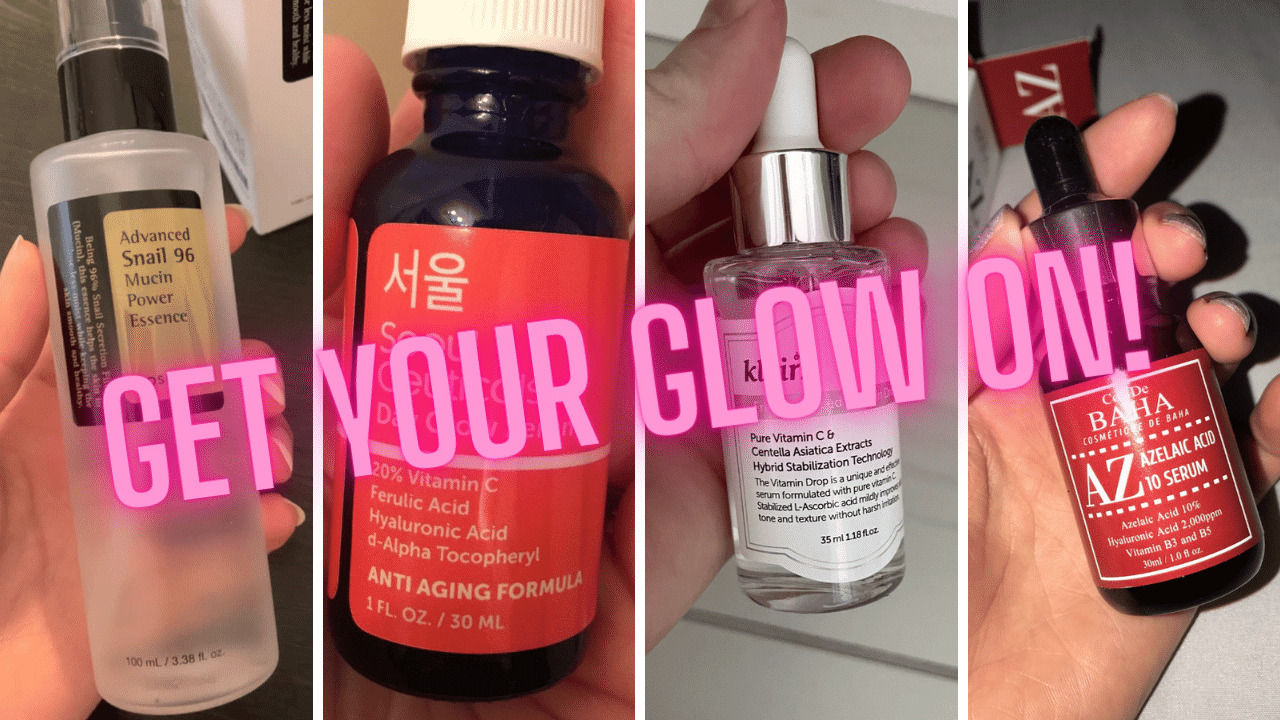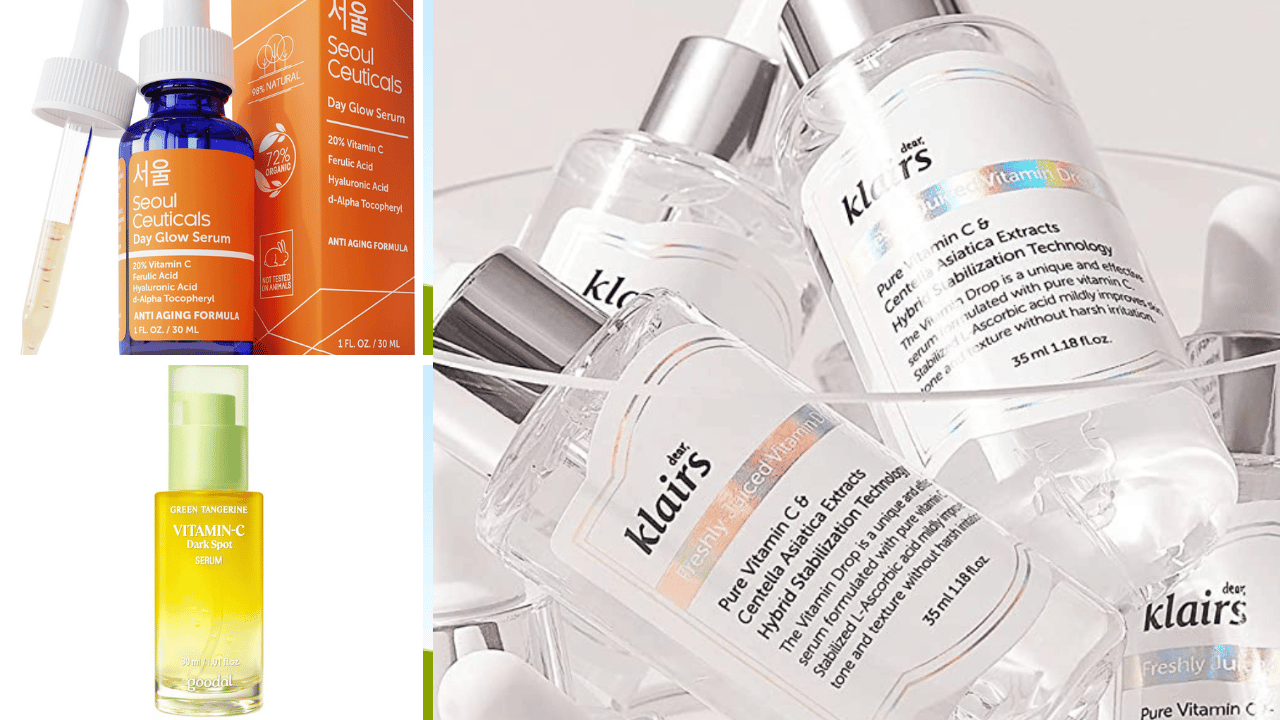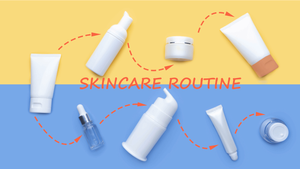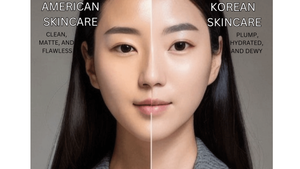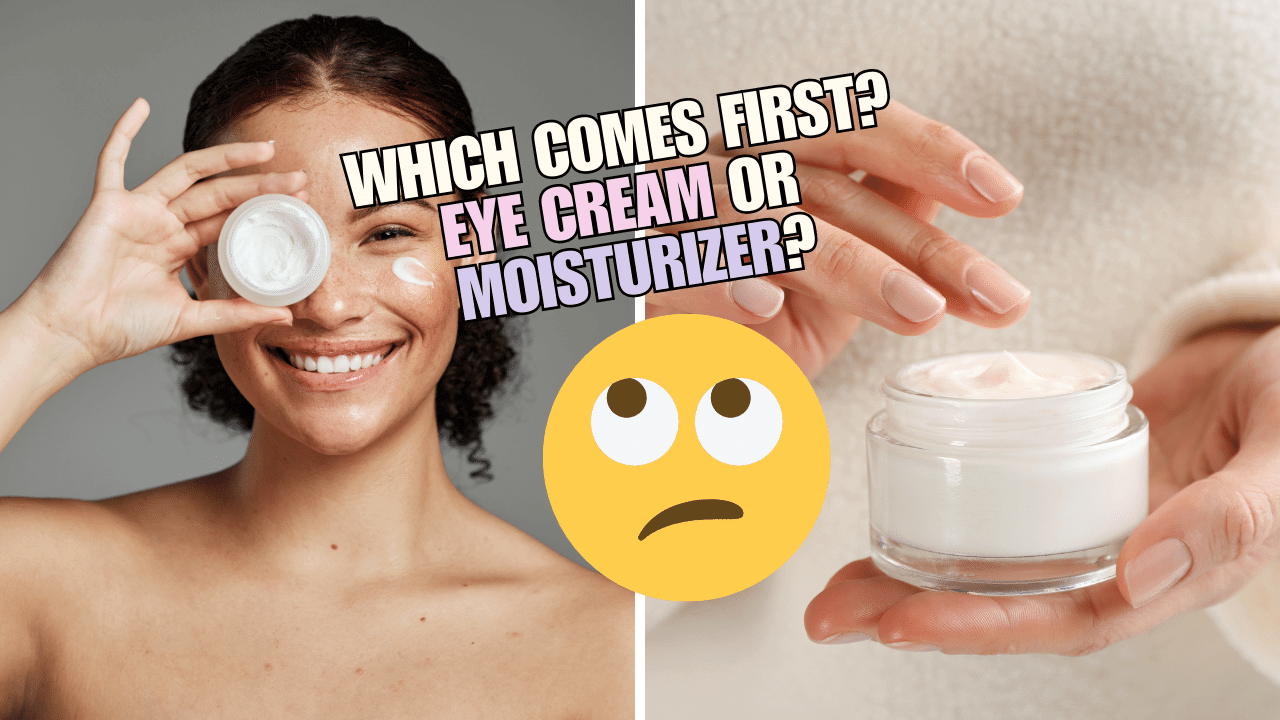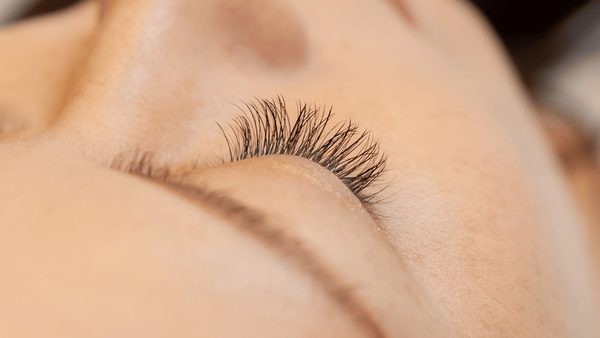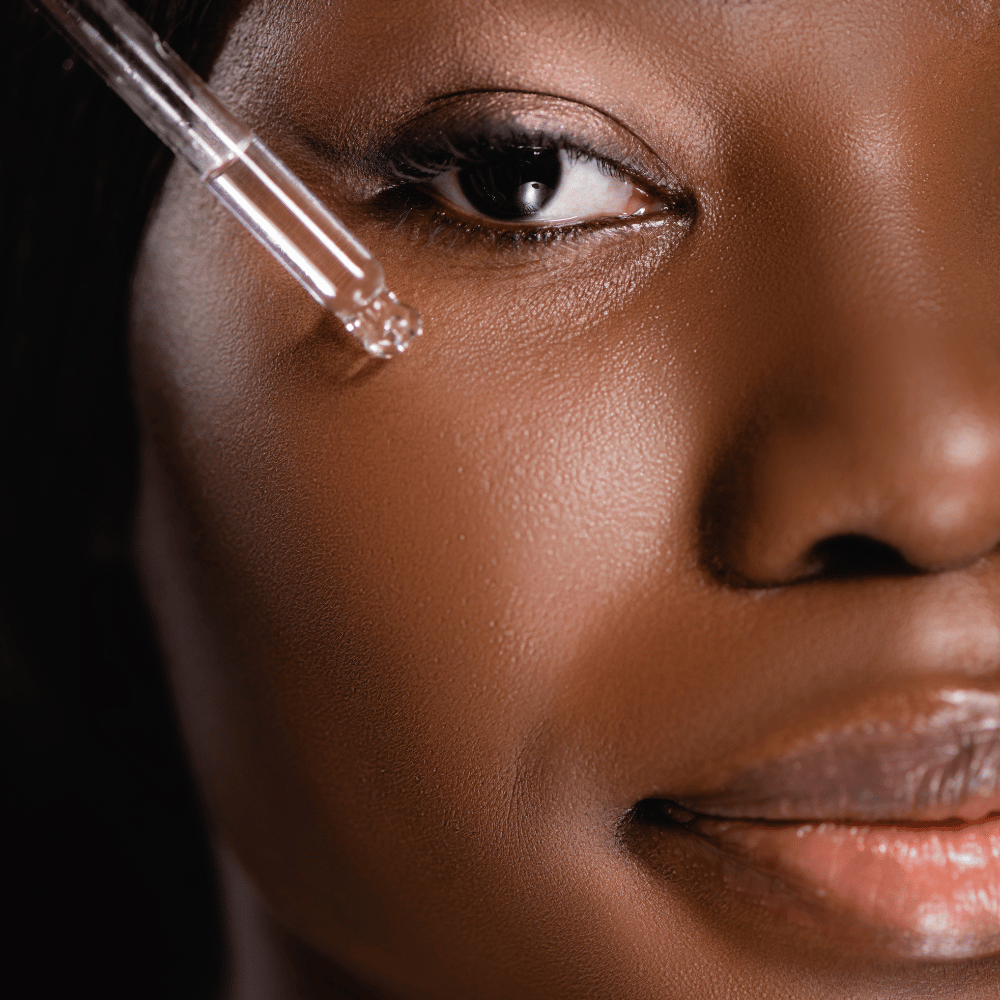
Introduction: The Skincare Game Changer
In recent years, serums have taken the skincare world by storm, becoming a must-have product for those seeking radiant, healthy skin. Serums have become a popular and essential addition to skincare routines worldwide. But what exactly are serums, and why have they become such game changers in the realm of skincare? This article aims to provide an overview of serums, their importance in skincare routines, and the reasons behind their soaring popularity.
As a beginner stepping into the world of serums, it's essential to understand the basics before making your first purchase. With the vast array of options available on the market, knowing what to look for can be daunting. Fear not, for we are here to guide you through the process, ensuring that you choose the perfect serum to meet your skincare needs. So, let's dive right in and discover the magic behind these powerful little potions!
The Science Behind Serums: Understanding Their Composition
Serums have become a staple in skincare routines around the world, known for their ability to deliver powerful ingredients deep into the skin and provide a multitude of benefits. To fully appreciate the power of serums and make an informed decision when purchasing, it's essential to understand their unique composition. Serums are lightweight, fast-absorbing liquids that contain a high concentration of active ingredients. Their thinner consistency and smaller molecular size allow them to penetrate deeper into the skin, delivering maximum efficacy.
There are various key components found in many serums, each offering specific benefits for the skin:
- Hyaluronic Acid: A natural substance found in our skin that attracts and retains moisture, keeping the skin hydrated and plump.
- Vitamin C: A potent antioxidant that helps brighten the skin, even out skin tone, and protect against environmental damage.
- Retinol: A derivative of vitamin A that assists in cell turnover, reducing the appearance of fine lines, wrinkles, and acne.
- Peptides: Short chains of amino acids that act as building blocks for proteins like collagen and elastin, improving skin firmness and elasticity.
- Growth Factors: Proteins that stimulate cellular growth and repair, promoting a youthful and healthy complexion.
To truly reap the benefits of these powerful ingredients, it's crucial to choose high-quality serums made with safe and effective components. Opt for products that are free from harmful chemicals such as parabens, sulfates, and synthetic fragrances. Additionally, ensure that the product has a proper concentration of active ingredients to maximize its efficacy.
When selecting a serum, look for trusted and reputable brands that have positive reviews and are recommended by skincare professionals. By doing thorough research and making informed choices, you can be confident that you're using the best serum for your specific needs, paving the way for radiant, healthy skin.
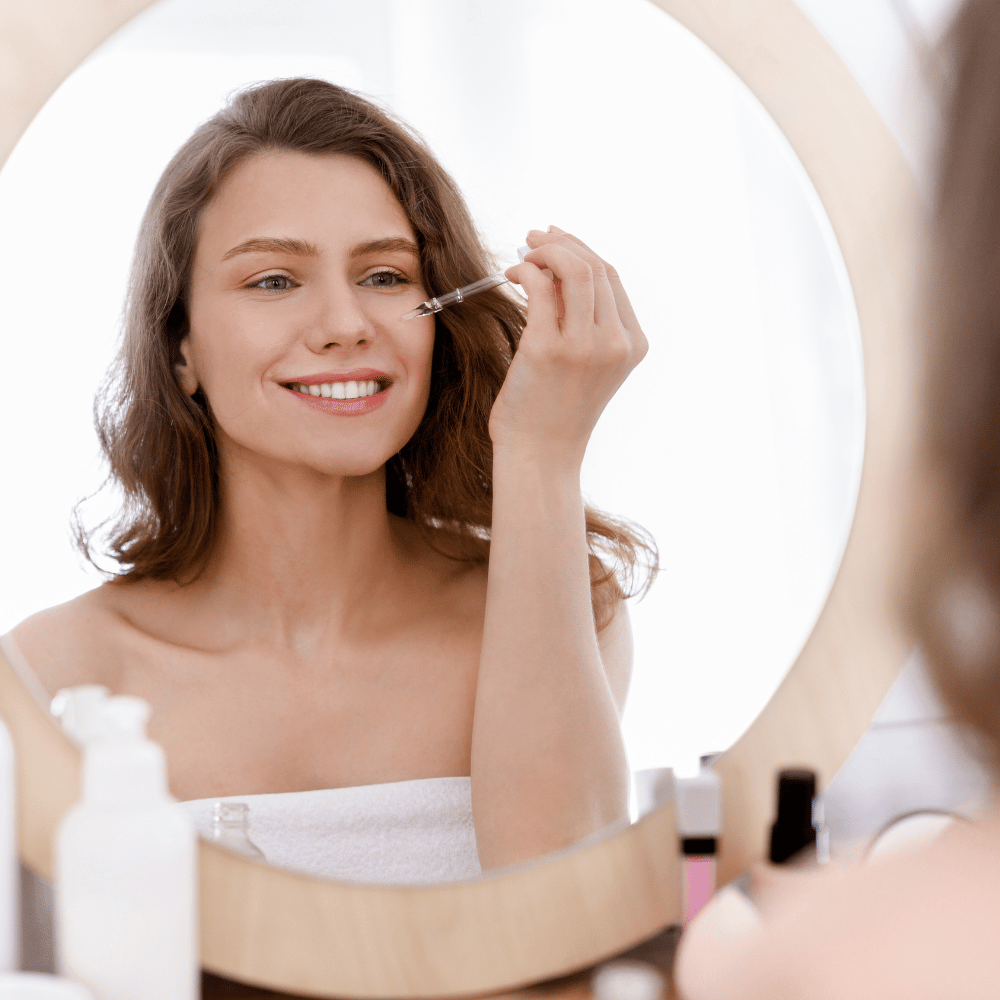
Types of Serums: Finding the Perfect Match for Your Skin
There are various types of serums available, each targeting specific skin concerns. Some common categories include:
- Hydrating serums: Packed with ingredients like hyaluronic acid, these serums provide intense hydration and help retain moisture.
- Anti-aging serums: Containing ingredients like retinol or peptides, these serums help reduce the appearance of fine lines and wrinkles.
- Brightening serums: Formulated with vitamin C or niacinamide, these serums help even out skin tone and reduce hyperpigmentation.
It's essential to choose a serum that addresses your unique skin concerns and matches your skin type (oily, dry, combination, or sensitive).
The Benefits of Serums
Serums offer numerous benefits, targeting specific skin concerns and providing a concentrated dose of nourishment. Some of the most common benefits include:
- Hydration
- Brightening
- Anti-aging
- Acne-fighting
- Reducing redness and inflammation
- Improving skin texture
How Serums Work: The Magic Behind Their Effectiveness
The effectiveness of serums lies in their ability to penetrate deep into the skin's layers, delivering active ingredients directly to the targeted cells. This allows for faster and more effective results compared to traditional creams and lotions, which often sit on the skin's surface.
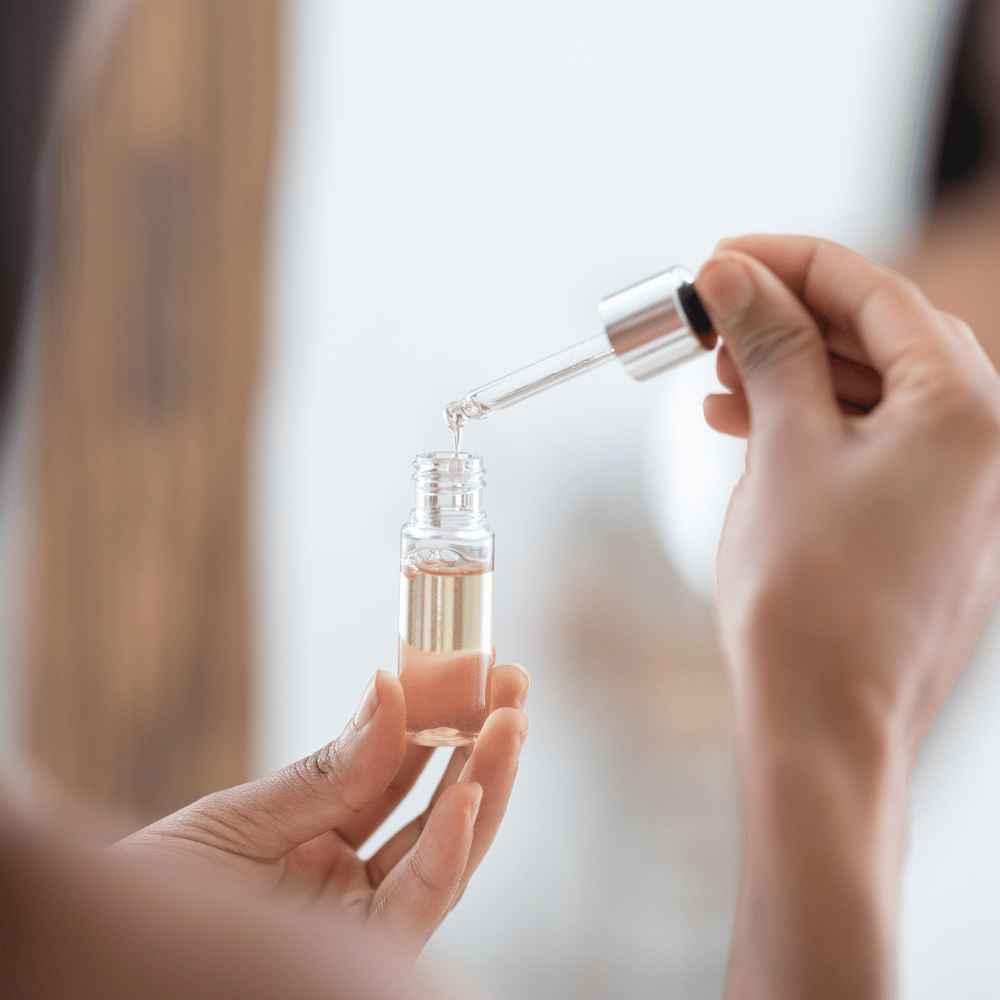
Comparing Serums to Other Skincare Products: What Sets Them Apart
Serums differ from other skincare products like creams, lotions, and toners in several ways:
- Higher concentration of active ingredients
- Faster absorption and deeper penetration
- Targeted treatment of specific skin concerns
While serums provide potent and targeted benefits, they should not replace other essential skincare steps like cleansing, toning, and moisturizing.
The Proper Way to Apply Serums: Maximizing Their Benefits
To get the most out of your serum, follow these steps:
- Cleanse your face: Begin by washing your face with a gentle cleanser suitable for your skin type. This will remove dirt, oil, and makeup, ensuring the serum can penetrate your skin effectively.
- Exfoliate (optional): If you exfoliate regularly, do so at this stage to remove dead skin cells and enhance serum absorption. Be sure to use a gentle exfoliant suitable for your skin type and follow the product instructions carefully.
- Pat your skin dry: After cleansing (and exfoliating, if applicable), gently pat your face dry with a clean, soft towel. Avoid rubbing, as this can cause irritation and redness.
- Apply toner (optional): If you use a toner in your skincare routine, apply it now. Toners help balance your skin's pH levels and prepare it for the serum.
- Dispense the serum: Using clean hands or a dropper, dispense a small amount of facial serum onto your fingertips. You'll typically need only a few drops, as serums are highly concentrated.
- Apply the serum to your face: Gently dab the serum onto your forehead, cheeks, chin, and nose. Using your fingertips, pat and smooth the serum into your skin in an upward and outward motion. Be sure to avoid the delicate eye area.
- Allow the serum to absorb: Wait for about 30 seconds to 1 minute for the serum to fully absorb into your skin. Your skin should feel slightly damp but not sticky.
- Apply moisturizer: Once the serum has been absorbed, apply a moisturizer suitable for your skin type. This will help lock in the serum's nutrients and keep your skin hydrated.
- Finish with sunscreen (for daytime use): If you're using the serum during the day, apply a broad-spectrum sunscreen with at least SPF 30 to protect your skin from harmful UV rays.
- Consistency is key: For best results, use your facial serum consistently, either once or twice daily as recommended by the product instructions. Over time, you should notice improvements in your skin's texture, tone, and overall appearance.
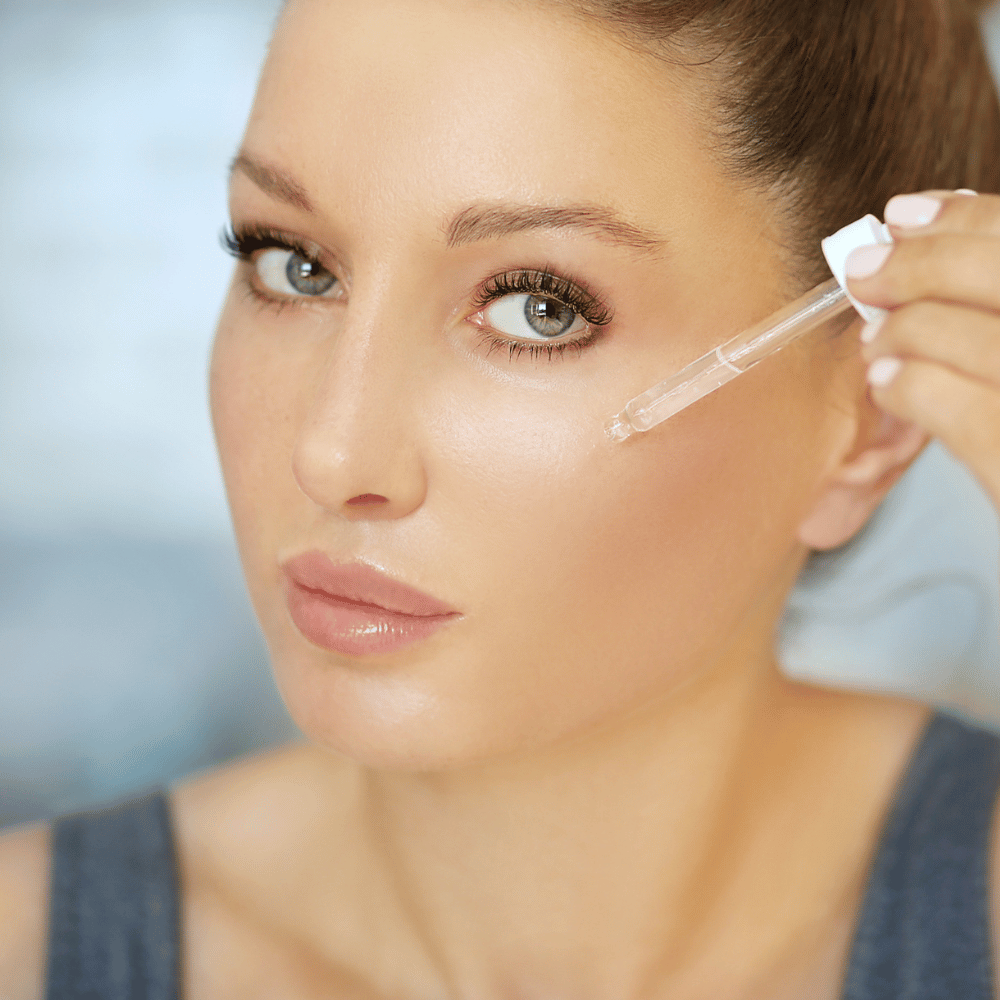
Serums for Specific Skin Types And Concerns: Addressing Acne, Aging, and More
Serums are powerful and highly concentrated skincare products that deliver active ingredients deep into your skin. They can target specific skin concerns such as aging, hydration, dark spots, or acne. But with so many serums on the market, how do you choose the right one for your skin type? In this article, we'll guide you through selecting a serum that suits your unique needs.
1. Dry Skin
If you have dry skin, look for a hydrating serum that contains hydrating ingredients like hyaluronic acid, glycerin, and ceramides. These ingredients attract and retain moisture, keeping your skin hydrated and preventing flakiness. Recommended serums: hyaluronic acid serum or ceramide-based serum.
2. Oily Skin
For those with oily skin, opt for lightweight, water-based serums that won't clog your pores or add extra oil. Look for ingredients like niacinamide, which helps regulate sebum production, and salicylic acid, which can unclog pores and reduce acne. Recommended serums: niacinamide serum or salicylic acid serum.
3. Sensitive Skin
If you have sensitive skin, it's essential to choose a serum with gentle, soothing ingredients. Look for calming agents like chamomile, aloe vera, and allantoin, which can help reduce redness and inflammation. Make sure to avoid fragrances, harsh chemicals, and strong acids, as these can irritate sensitive skin. Recommended serums: calming serum with chamomile or aloe vera, or an allantoin-infused serum.
4. Combination Skin
For combination skin, you'll want to find a serum that balances oil production while providing hydration. Look for ingredients like hyaluronic acid for hydration and niacinamide or salicylic acid to control oiliness in your T-zone. Recommended serums: hyaluronic acid and niacinamide serum, or salicylic acid and hyaluronic acid serum.
5. Aging Skin
If you're looking to target signs of aging, choose a serum with ingredients like retinol, peptides, or vitamin C. These ingredients can help boost collagen production, smooth fine lines and wrinkles, and improve skin elasticity. Recommended serums: retinol serum, peptide serum, or Vitamin C serum.
6. Acne-Prone Skin
For acne-prone skin, look for serums containing salicylic acid, tea tree oil, or benzoyl peroxide. These ingredients can help unclog pores, reduce inflammation, and prevent future breakouts. Make sure to avoid heavy, oil-based serums that can clog pores and worsen acne. Recommended serums: salicylic acid serum, tea tree oil serum, or benzoyl peroxide serum
7. Hyperpigmentation and Uneven Skin Tone
To target hyperpigmentation and uneven skin tone, choose a serum with brightening ingredients like vitamin C, alpha-arbutin, kojic acid, or even glycolic acid. These ingredients work by inhibiting melanin production, which can help fade dark spots and even out your complexion. Recommended serums: Vitamin C serum, alpha-arbutin serum, or kojic acid serum.
Choosing the right serum for your skin type is crucial for achieving optimal results. Make sure to consider your specific skin concerns and look for key ingredients that address those issues. And don't forget to patch-test any new serums on a small area of your skin before applying them to your entire face, as this can help you avoid potential irritation.
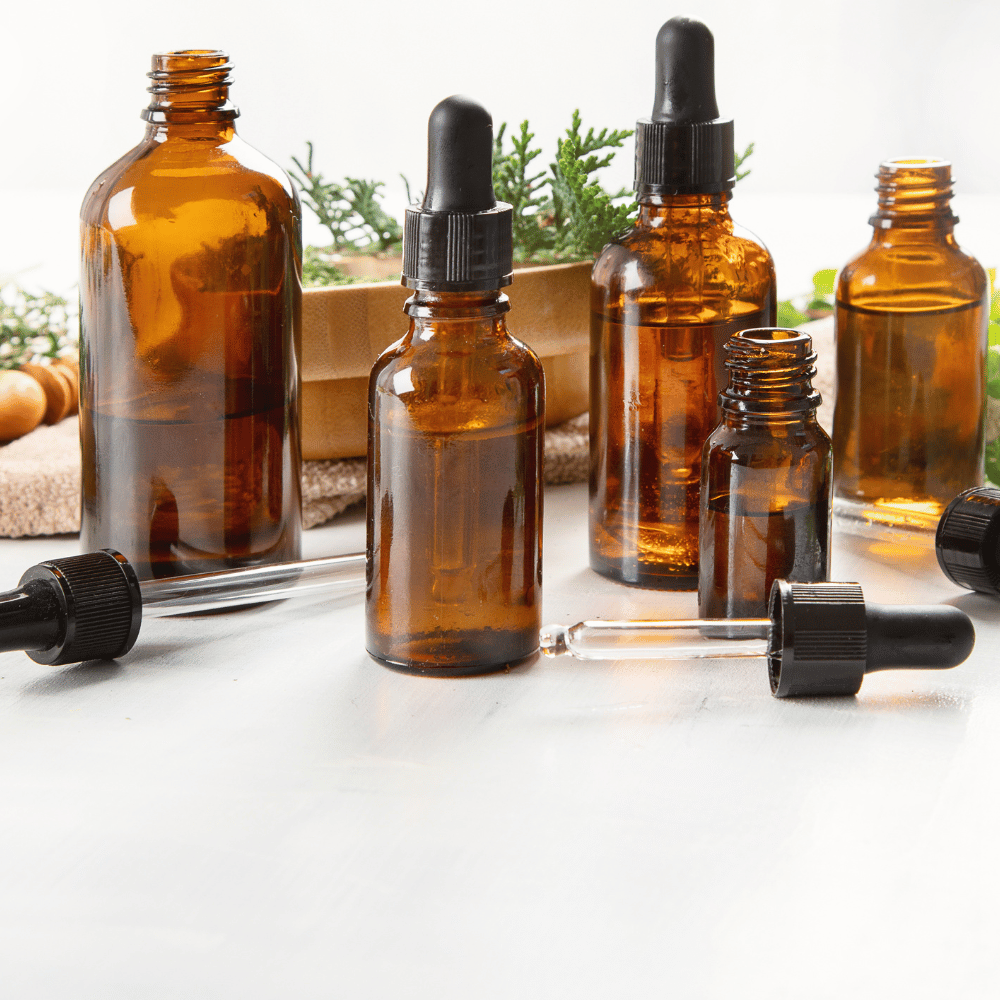
DIY Serums: Crafting Your Customized Skincare Solution
Making your own serums at home allows you to create a customized solution tailored to your specific needs. Start by researching natural ingredients that target your skin concerns and experiment with different combinations to find the perfect formula for your skin.
Here is a recipe for a DIY facial serum that you can try:
- 1 drop Rose Essential Oil
- 2 drops Sandalwood Essential Oil
- 2 drops Frankincense Essential Oil
- 1 oz carrier oil of your choice (such as avocado oil or jojoba oil)
Add essential oils to an amber-colored glass bottle with a glass dropper. Pour in the carrier oil you are using. Shake well before use. Recipe from homemademommy.net
Using rose essential oil topically can help balance your skin's moisture levels and reduce the appearance of skin imperfections due to its astringent qualities. Apply it on areas of concern to promote an even skin tone, reduce the appearance of blemishes, and encourage a healthy complexion.
Using sandalwood essential oil can potentially provide benefits for various skin concerns, such as scarring, wrinkles, inflammation, eczema, psoriasis, wound healing, acne, and skin tone.
The use of frankincense oil can be helpful for those with oily or acne-prone skin as it can detoxify and regulate the amount of sebum on the skin. Additionally, it may enhance skin elasticity, reduce signs of photoaging, and boost skin firmness.
Always patch-test a new serum or oil on a small area of your skin to check for any adverse reactions before incorporating it into your skincare routine. These oils could irritate the skin.
The Do's and Don'ts of Serum Use: Tips for Optimal Results
To ensure the best results from your serum, keep these tips in mind:
- Do apply serums after cleansing and toning, but before moisturizing.
- Don't mix multiple serums together; instead, alternate their use or apply one in the morning and another at night.
- Do give your serum time to absorb before applying other products.
Debunking Serum Myths: Separating Fact from Fiction
Some common misconceptions about serums include:
- Myth: Serums are only for people with specific skin concerns.
- Fact: Serums can benefit all skin types and address a wide range of issues.
- Myth: Serums can replace your moisturizer.
- Fact: Serums should be used in addition to your moisturizer, not as a replacement.
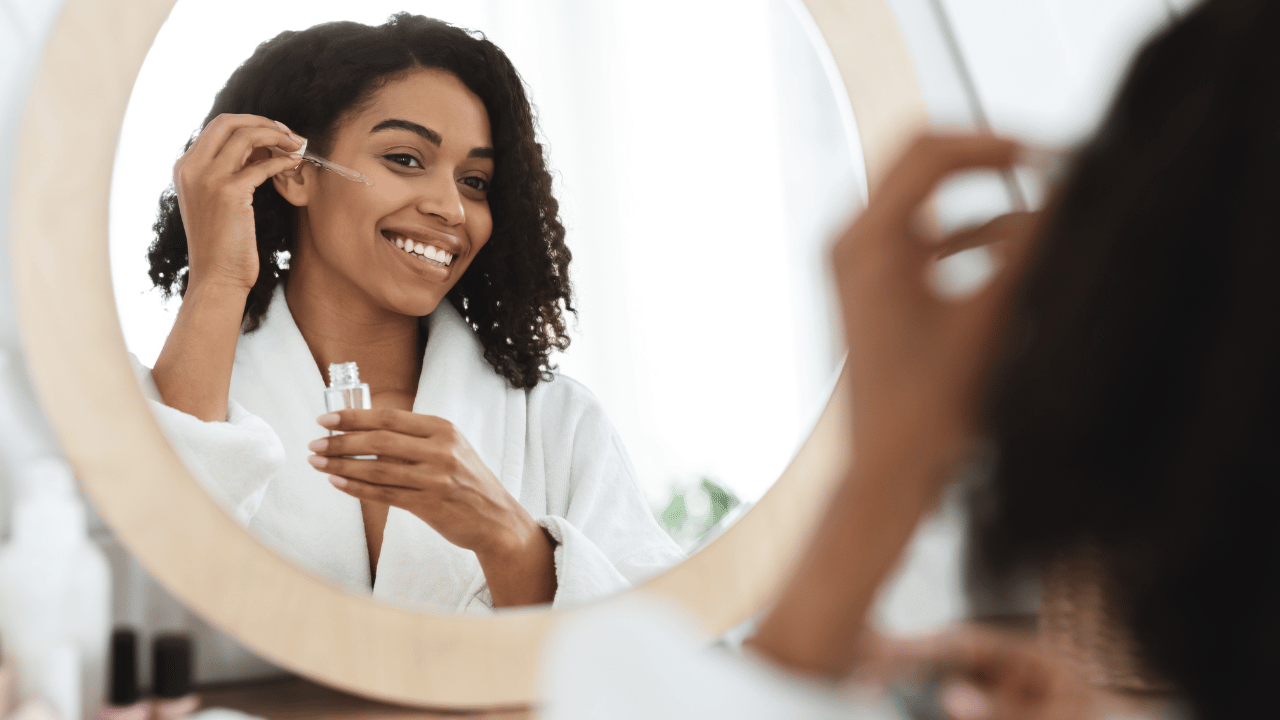
Investing in Quality Serums: How to Choose the Right Product for You
When shopping for a serum, consider the following:
- Choose high-quality products from reputable brands with transparent ingredient lists. Look for serums that are free from harmful chemicals, such as parabens, sulfates, and synthetic fragrances. Additionally, ensure the product has a proper concentration of active ingredients to maximize its efficacy.
- Read reviews, consult with skincare professionals, and do your research to ensure you're using the best serum for your specific needs.
- Consider your budget, as face serums can vary significantly in price.
Conclusion: Embracing the Power of Serums for Radiant, Healthy Skin
Incorporating serums into your skin care routine can provide targeted solutions to various skin concerns, helping you achieve radiant and healthy skin. By understanding the science behind serums, choosing the right product for your needs, and using them correctly, you can unlock their full potential and transform your skin.
• "The only way to have a good idea is to have lots of ideas." - Linus Pauling
You may also like:
